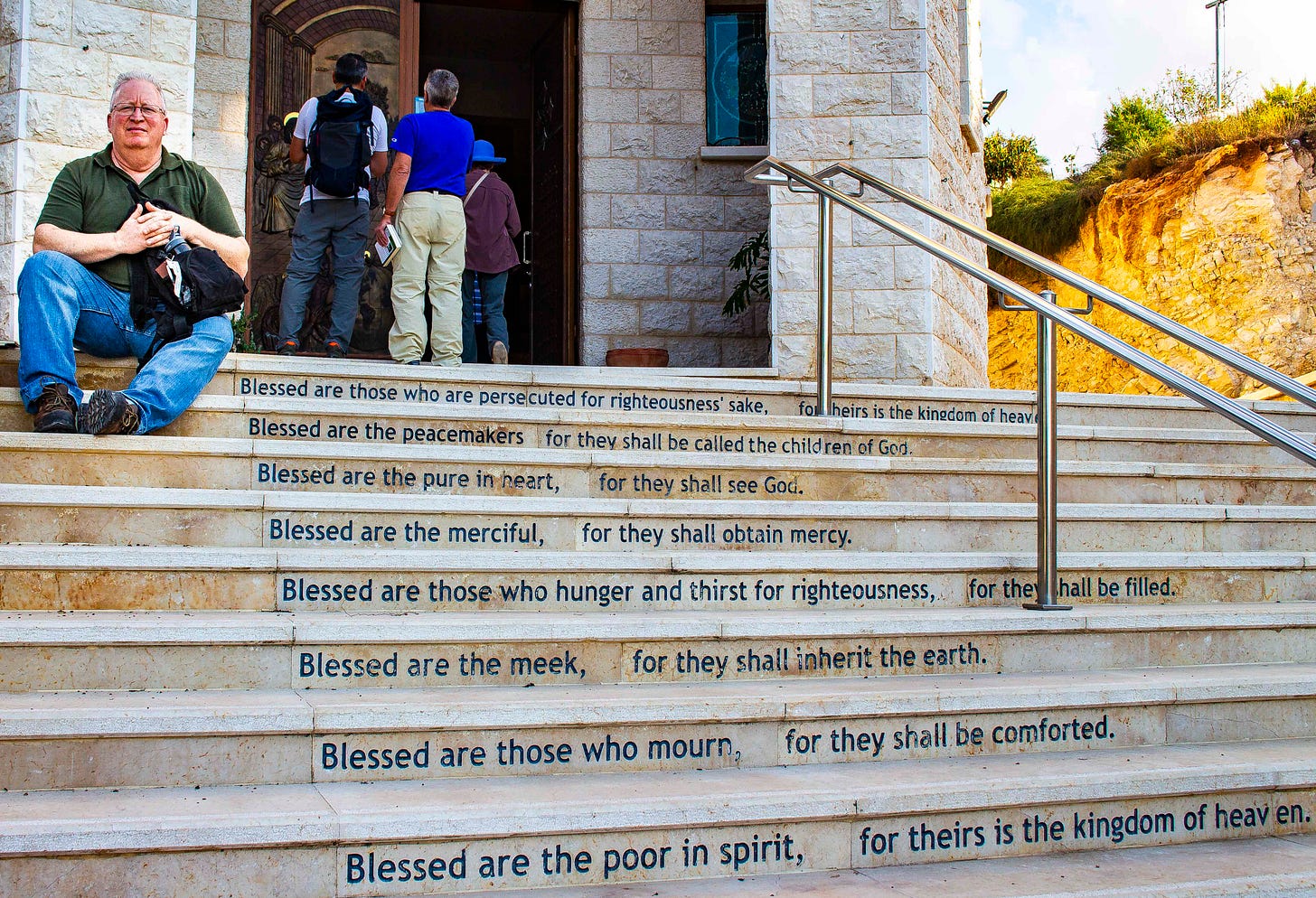The Ten Commandments and Jesus' Beatitudes
Reconsidering our loyalties and the call to becoming poor in spirit
“I am the Lord your God, who brought you out of Egypt, out of the land of slavery. You shall have no other gods before me.” (Exodus 20:2-3)
“Blessed are the poor in spirit, for theirs is the kingdom of heaven.” (Matthew 5:3)
I wish that Americans were as eager to post the Beatitudes of Jesus in classrooms as much as some want to post the 10 Commandments (see a recent Texas State law). My hunch is that America could be a vastly different society if we sought to live the beatitudes as much as obeying the 10 Commandments.
Here’s the difference between the first of the 10 commandments and the first beatitude. The first commandment in Exodus 20 is about idolatry, i.e. we must have no other gods (idols) above or more important than the God of the Universe. God is a realist about people and He knows that we all will have idols. But we are commanded to not put anything or anyone or any ideology before God.
It is the FIRST commandment and the most important one. If we fail at the first commandment we fail at the other nine. The bad news is that we fail miserably at keeping the first command. All of us - Jew, Christian, Muslim, Buddhist, Hindu, Atheist.
Our idols? To name a few current ones:
Power and Control - we believe we are masters of our own destiny!
Loving money and possessions
Personal safety and security (this is so significant for modern western cultures)
Undo allegiances to kings, emperors, and presidents
Spouses, children, best friends (all good, but not idols)
The first beatitude does not command us to DO anything. It is rather a description of people who have been acted upon by God and demonstrate a certain quality - that of humility and an awareness that we are indeed idolaters.

“I Came to Fulfill the Law”
“Do not think that I have come to abolish the Law or the Prophets; I have not come to abolish them but to fulfill them.” (Matthew 5:17)
Jesus came to fulfill the 10 Commandments, not to abolish them. How does he do this? By empowering people to have lives that actively embody the beatitudes - poor in spirit, mourners, the meek, peacemakers.
Dallas Williard in The Divine Conspiracy puts it this way:
“Jesus matters because of what he brought and what he still brings to ordinary human beings, living their ordinary lives and coping daily with their surroundings. He promises wholeness for their lives. In sharing our weaknesses he gives us strength and and imparts through his companionship a life that has the quality of eternity."
The fact that Jesus came to fulfill the Law does not tell us directly whether or not we should list the 10 Commandments in public school classrooms. What it instructs us at least is that the Beatitudes should be posted right next to the 10 commandments, not to replace them but to remind us that those commands and regulations are fulfilled in lives marked by the qualities of Jesus who was himself poor in spirit.




Another excellent post